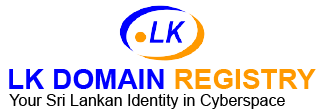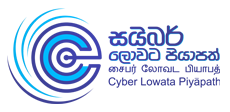Purpose
-
- The debate club in a school aims to foster intellectual engagement, communication skills, and knowledge of current affairs among students.
- It provides a structured environment where students can engage in debates, discussions, and argumentation on various topics.
Activities
-
- Debate Formats: Participating in structured debates using formats such as parliamentary debate, policy debate, Lincoln-Douglas debate, or impromptu debates.
- Preparation Sessions: Researching topics, preparing arguments, and practicing rebuttals with fellow club members and coaches.
- Mock Debates: Conducting practice debates within the club to refine skills in argumentation, persuasion, and logical reasoning.
- Competitions: Participating in local, regional, or national debate tournaments and competitions against other schools or debate clubs.
- Public Speaking Workshops: Hosting workshops or seminars on public speaking techniques, speech delivery, and effective communication strategies.
- Guest Speakers: Inviting guest speakers, experts, or alumni to share insights, provide feedback, or serve as judges during debates.
- Debate Camps: Attending or organizing debate camps or workshops during holidays or weekends to intensively practice skills and bond as a team.
Membership and Organization
-
- Open Membership: Typically open to students of all grades and academic backgrounds who are interested in debating, regardless of prior experience.
- Leadership: Led by a faculty advisor or debate coach, with student officers (such as president, vice president, secretary) responsible for club operations.
- Committees or Teams: May have specialized teams or committees focusing on debate formats, research, logistics, and outreach.
- Regular Meetings: Holding regular meetings to discuss upcoming debates, practice arguments, and plan club activities.
Resources
-
- Debate Resources: Access to debate topics, research materials, case files, sample speeches, and guidelines for various debate formats.
- Facilities: Availability of debate rooms, audiovisual equipment, podiums, and seating arrangements suitable for conducting debates and public speaking practice.
- Training Materials: Access to debate manuals, online resources, and databases for conducting research and preparing arguments.
- Support from School: Endorsement and support from school administration for participating in competitions, hosting events, and promoting intellectual discourse.
Benefits
-
- Critical Thinking: Enhances critical thinking skills by analyzing complex issues, evaluating evidence, and constructing logical arguments.
- Public Speaking: Improves confidence, articulation, and persuasive speaking skills through regular practice and constructive feedback.
- Research Skills: Develops research proficiency in gathering, organizing, and citing credible sources to support arguments.
- Teamwork and Collaboration: Promotes teamwork, cooperation, and camaraderie among club members working together to prepare for debates.
- Leadership Development: Provides opportunities for leadership roles within the club, such as organizing events, mentoring new members, or representing the club externally.
Impact
-
- Academic Excellence: Enhances academic performance by fostering analytical skills, communication abilities, and broadening knowledge on diverse topics.
- Personal Growth: Cultivates self-confidence, resilience, and adaptability in expressing opinions and defending viewpoints in a respectful manner.
- Career Readiness: Prepares students for future careers in law, politics, journalism, public policy, and other fields requiring strong communication and critical thinking skills.
- Community Engagement: Engages the school community in intellectual discourse, promotes civic awareness, and encourages informed decision-making.
Overall, participation in a debate club offers students a rich learning experience, equipping them with valuable skills that extend beyond the classroom and into their future endeavors. For specific details about a particular school's Debate Club, including activities, competitions, and membership requirements, it's advisable to contact the school directly or visit their official website.






